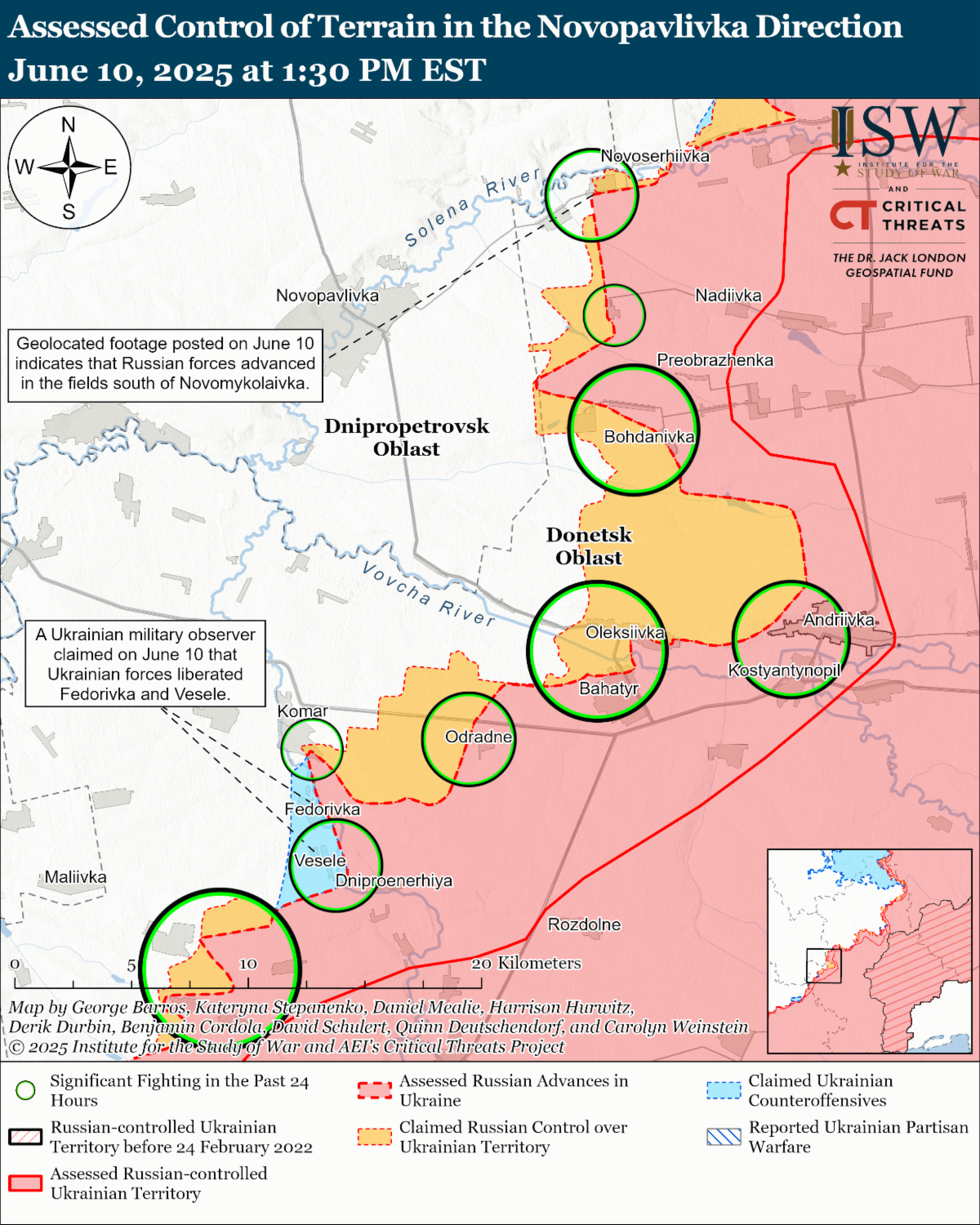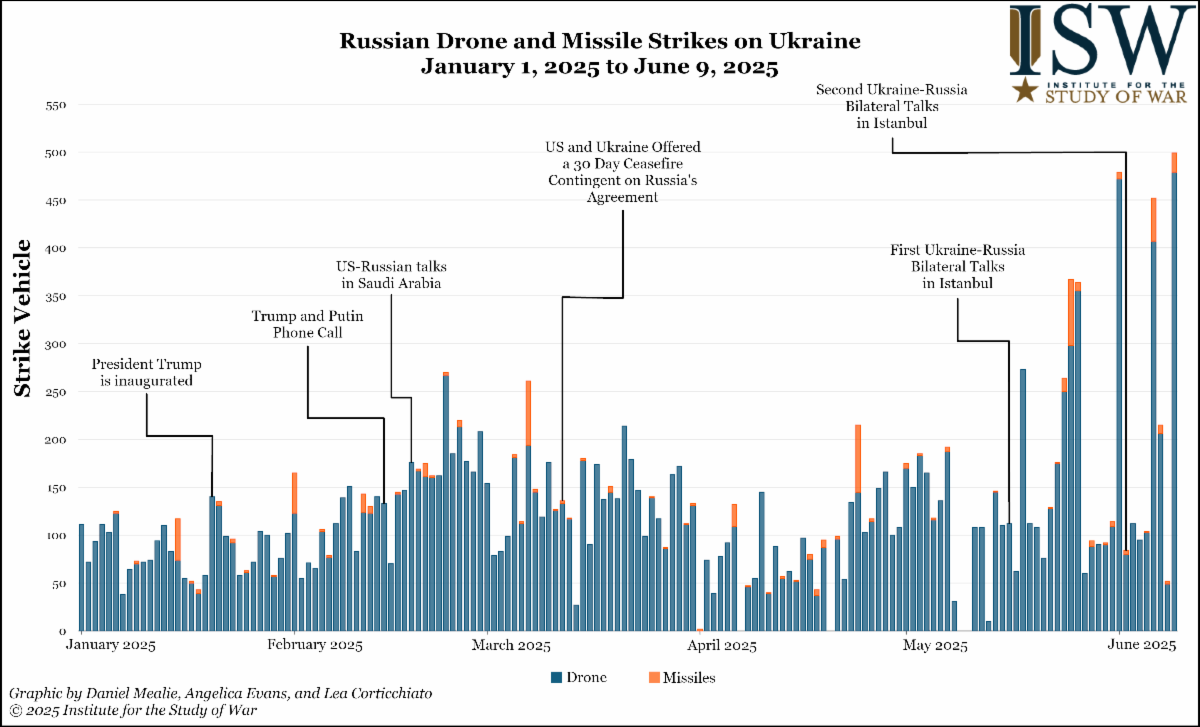Russian President Vladimir Putin appears to be switching between rhetoric focused on Russian ethnic nationalism and Russian multinationalism, but remains committed to promoting anti-Western sentiment and the militarization of Russia's youth. Putin held a meeting with the Security Council on June 10 that largely focused on the unification of the peoples of Russia and the use of military-patriotic youth programs and Russian government initiatives to promote Russian patriotism. Putin highlighted the work of the "Movement of the First," a Russian youth movement aimed at promoting military-patriotic education in Russia and occupied Ukraine, and "Yunarmiya" ("The Youth Army"), a movement that is responsible for instilling pro-war sentiments in Russian children and teenagers. Putin also highlighted the Russian state-mandated weekly lessons in schools that often include lectures by soldiers from the war in Ukraine. Putin platformed BRICS, the Collective Security Treaty Organization (CSTO), and the Commonwealth of Independent States (CIS) — Russian-dominated organizations that Putin and other Kremlin officials have repeatedly postured as the foundation of Putin's envisioned anti-Western and anti-NATO Eurasian security architecture. Putin stated that Russia must respond to challenges that promote interethnic and interreligious conflict in Russia and highlighted the "unity of the peoples of Russia." Putin recently began forwarding an unofficial ideology formulated on Russian nationalism that positions Russia in opposition to the West, which marked a notable departure from Putin's usual rhetoric promoting the multiethnic and multireligious makeup of Russia's population. Putin's remarks at the June 10 Security Council meeting appear to be a return to this rhetoric about the diversity of Russia and Russian civic nationalism. Putin appears committed, however, to promoting anti-Western and pro-war sentiments, especially in Russian youth, likely as part of efforts to prepare Russian society for a protracted war in Ukraine and possible future conflict with NATO. Putin's June 10 statements about harmony and unity in Russia indicate that he likely remains hesitant to fully commit to a nationalist ideology centered around ethnic Russians, as this risks fragmenting Russia's multiethnic population. ISW continues to assess that Putin must work to balance appeasing the influential xenophobic and ultranationalist community, which is a key constituency for Putin, with the need to leverage migrants to offset immediate economic and force generation challenges and long-term demographic decline.
Key Takeaways:
- Russian President Vladimir Putin appears to be switching between rhetoric focused on Russian ethnic nationalism and Russian multinationalism, but remains committed to promoting anti-Western sentiment and the militarization of Russia's youth.
- Russia is reportedly working to increase the number of North Korean labor migrants in Russia, likely to support Russia's workforce and to directly join the Russian military.
- Ukraine and Russia conducted the second round of prisoner of war (POW) exchanges on June 10, in accordance with agreements the parties reached in Istanbul on June 2.
- Ukrainian forces recently advanced near Vovchansk, Borova, Lyman, and Toretsk. Russian forces recently advanced near Kupyansk and Toretsk.
| 





 [ISW] 이란 업데이트, 2025년 6월 10일
[ISW] 이란 업데이트, 2025년 6월 10일
 [ISW] 이란 업데이트, 2025년 6월 9일
[ISW] 이란 업데이트, 2025년 6월 9일